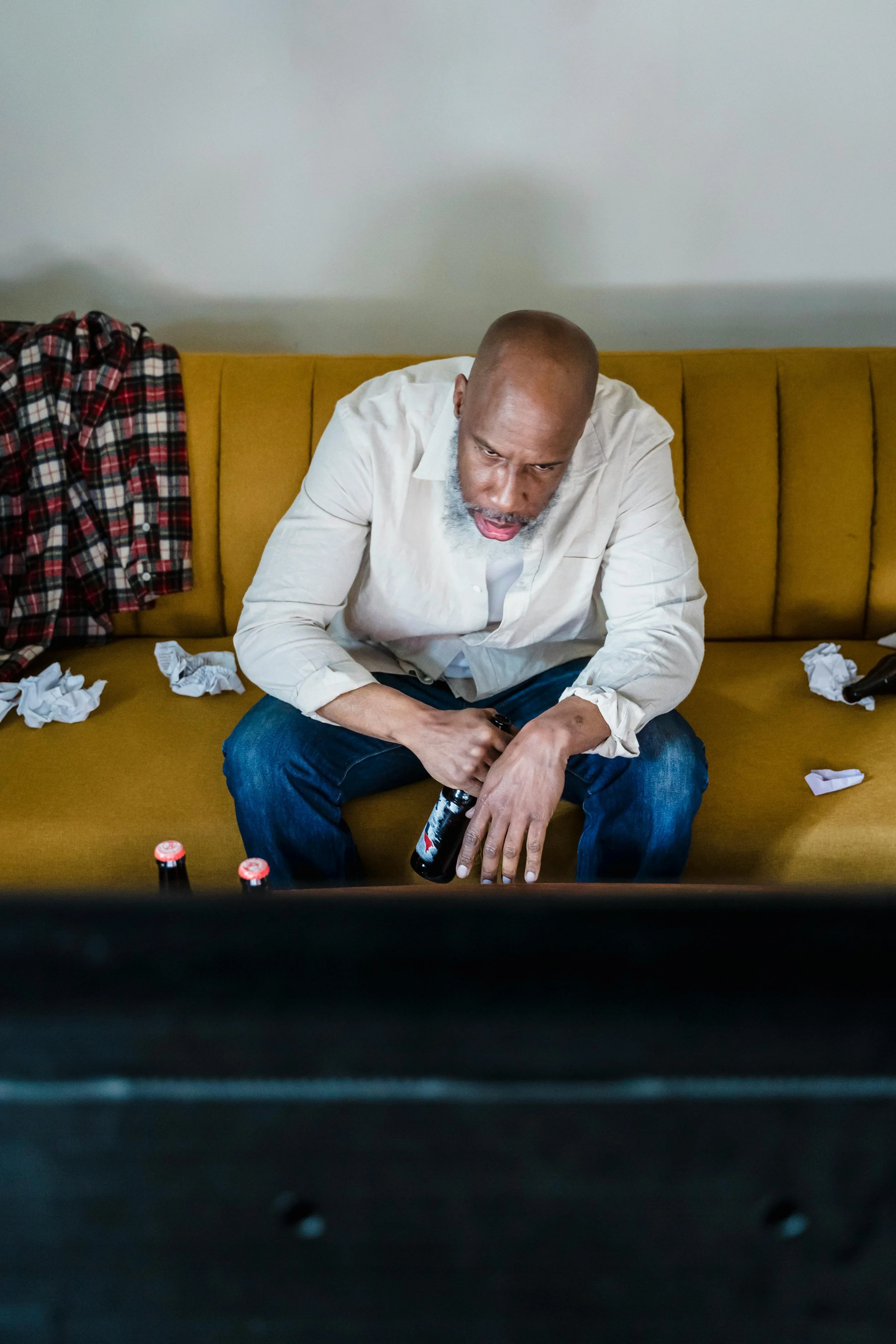AM I DOING OK? ARE YOU OK? SIGNS OF MENTAL HEALTH Issues You Shouldn’t Ignore (For yourself and those around you…)
Photo by: Allef Vinicius
It’s time to name the warning signs that too many folks brush off. IT’S OKAY IF YOU’RE NOT OK. CHECK IN WITH YOURSELF and others:
When the Blues Don’t Go Away
Sadness is a natural emotion. But when it lingers for weeks, turns into hopelessness, or makes everything feel meaningless, it’s not just a rough patch. It’s a symptom. Depression doesn’t care how strong you are, how much you pray, or how many responsibilities you juggle. And in a world that keeps throwing curveballs, emotional exhaustion is real. If joy feels out of reach, don’t ignore it.
Pulling Away and Disappearing
The friend who used to hit you up daily but is now a ghost? The family member who suddenly stops coming around? You haven’t left your apartment in days. Isolation is often a quiet cry for help. People withdraw when they’re struggling, whether it’s anxiety, depression, or just feeling overwhelmed by life. We gotta check in on our folks, and check in with ourselves…even (and especially) when they say, “I’m fine.”
Sleep Ain’t Sleeping No More
Can’t fall asleep? Keep waking up? Or maybe sleep is your only escape? When rest is off balance, mental health is usually at play. Anxiety, depression, PTSD—they all show up at night when the world gets quiet. The stress of simply surviving today makes peaceful sleep feel like a luxury. But sleep is healing. Pay attention if it's out of whack.
Photo by: Nicola Barts
Eating Feels Different
Some folks stop eating when life gets hard. Others eat everything in sight. Either way, a shift in appetite—especially when paired with other struggles—is the body’s way of saying something’s up. Food insecurity, stress eating, skipping meals because nothing sounds good—it’s all connected. Your relationship with food can tell you a lot about where your head is at.
When Pain Isn’t Just Physical
You know those migraines that won’t quit and the stomach problems with no medical cause? A body that always feels tense, heavy, or just plain off? Mental health concerns don’t just stay in your head—they show up in your body. Too many of us suffer in silence. If you can’t find a reason for your pain, don’t overlook mental wellness as a possibility.
Self-Medicating to Get By
A drink after work to unwind is one thing. Are you drinking to numb or fall asleep? Using weed to avoid emotions? Popping pills to get through the day? How many cigarettes are you going through a day? That’s a different conversation. Since the pandemic, substance use has been on the rise, especially with inflation making life feel unbearable for so many. Coping is necessary, but not all coping is healthy. If substances are the go-to, it’s time to reevaluate.
Photo by: Maurício Mascaro
Living on Edge
That feeling like something bad is always about to happen? Like your body is in fight-or-flight mode 24/7? That anxiety is real.. But when that bodily stress turns into constant fear, panic attacks, or avoidance of daily life, it’s a warning sign worth listening to.
The Brain Fog Won’t Lift
Forgetting things, struggling to focus, feeling like your brain is moving through quicksand—mental health struggles don’t just hit emotions; they hit cognition too. Depression and anxiety make it hard to think straight, and when the world is already demanding so much, that brain fog can make everything feel impossible. If your thoughts feel sluggish every day, don’t just brush them off as exhaustion.
The Anger is Too Quick
Irritability, frustration, snapping at people over little things—sometimes, anger is covering up deeper struggles. And for Black and Brown folks, where we’ve been told to “be strong” and “hold it in,” emotions get bottled up until they explode. If someone’s temper has been shorter than usual, don’t assume it’s just a bad mood. It might be painful trying to speak.
Photo by: Nsey Benajah
When Life Feels Like Too Much to Handle
If thoughts of giving up, disappearing, or not wanting to be here creep in, don’t ignore them. Suicide rates are rising, and too many of us are suffering alone. When someone expresses feelings of worthlessness or hopelessness, it’s time to take action—immediately. There’s no shame in needing help, but there’s danger in staying silent.
What to do:
If any of this sounds familiar—for yourself or someone you love—there are steps to take:
Talk About It: Whether it’s a therapist, a trusted friend, or a support group, speaking up is the first step toward healing.
Find a Therapist Who Gets It: Therapy ain’t just for “other” people—it can be for you too. And finding a culturally competent therapist can make all the difference.
Unplug When Needed: Social media and the news cycle can add stress. Take intentional breaks.
Make Space for Self: Whether it’s prayer, journaling, taking a walk, or just sitting in silence—find what restores you.
Check on Your People: The ones who seem the strongest are often carrying the most. Don’t wait for them to reach out—be the one who does.
You’re Not Alone
Mental health struggles don’t make you weak—they make you human. And in a world that expects us to be superhuman just to survive, the strongest thing you can do is acknowledge when you need help. Let’s make sure we’re all taking care of each other.
We are here. If you or someone you know is struggling, call or text 988 for the Suicide & Crisis Lifeline.




